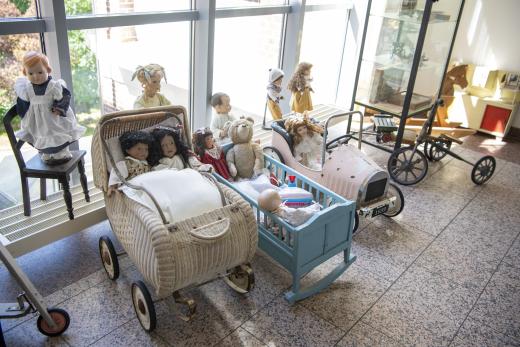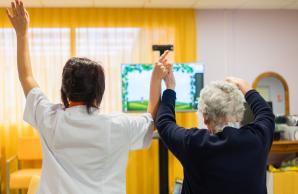Non-pharmacological interventions and Alzheimer’s disease
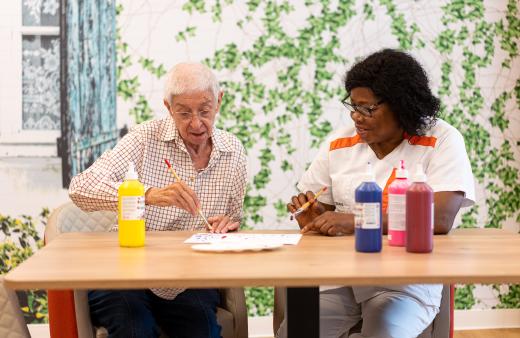
Physical activity, flash activities carts, art therapy, horticultural therapy, animal mediation, therapeutic screen and many others: there are many non-pharmacological approaches to improving the quality of life of patients suffering from Alzheimer’s disease and related disorders.
In all our Korian facilities in Europe, Clariane offers non-pharmacological interventions (NPIs) to people living with Alzheimer’s disease. We systematically carry out a multidisciplinary evaluation before selecting a suitable NPI, which is applied according to a protocol.
Non-pharmaceutical interventions (NPIs) are a set of care techniques, environmental approaches, and human approaches that aim to:
- Improve people’s well-being and quality of life
- Maintain cognitive, motor and sensory skills
- Develop social skills
- Reduce psychological and behavioural symptom
Non-pharmaceutical interventions we offer in our care homes
Adapted gymnastics: helps to improve social interaction, independence and well-being of the nursing home residents, among other things.
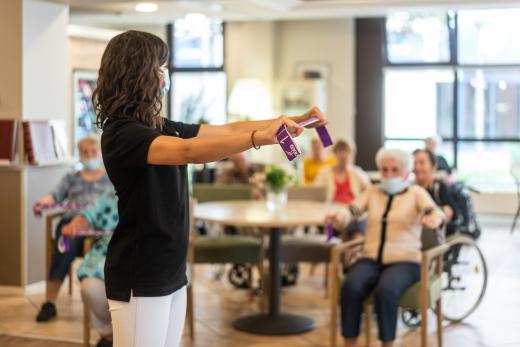
The flash cart: offers a range of tools designed to calm acute behavioural disorders in the elderly, especially those suffering from Alzheimer’s disease.
Doll therapy: stimulates empathy and reassures people with Alzheimer’s disease.
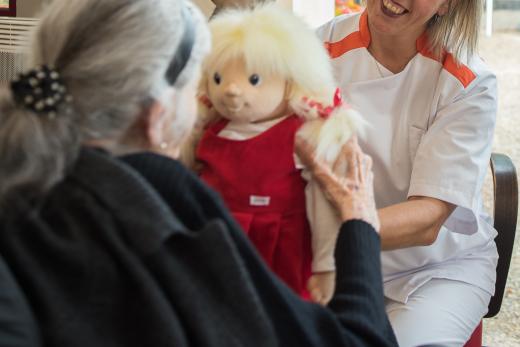
Art therapy: allows people living with the disease to rediscover past emotions while maintaining their cognitive abilities. It stimulates short-term memory, but also helps to maintain long-term memory.
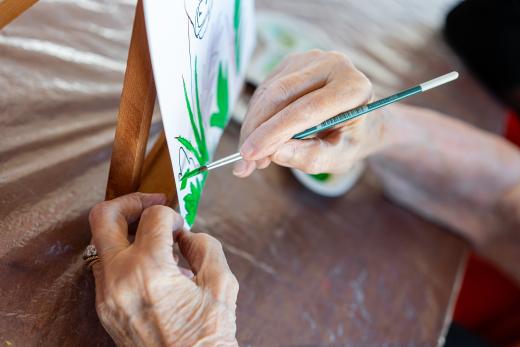
Horticultural therapy: uses gardens, gardening, growing plants and the relationship with nature as a therapeutic tool. Led by a trained professional, horticultural therapy helps to slow cognitive decline and reduce agitation, while promoting a sense of well-being and the expression of positive emotions, alongside the satisfaction of engaging in activities linked to nature.
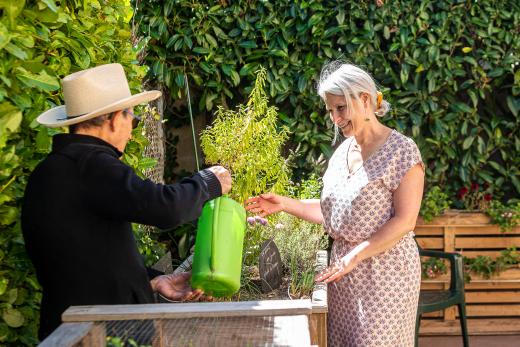
Animal-assisted therapy: makes it possible to work on people’s cognitive, linguistic and motor skills, as well as overcoming their isolation, calming them down and simply putting a smile back on their faces.
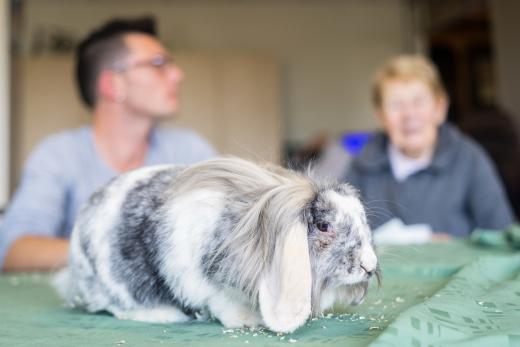
The therapeutic screen: aims to help residents who suffer from severe or moderate cognitive impairment to situate themselves spatially and temporally in their environment.
Reminiscence therapy: is designed for people living with mild to moderate Alzheimer’s disease or a related disorder. It consists of activities and discussions about past events. It is used to improve social interactions, communication and quality of life. On an Individual basis, this therapy is used to improve mood, depressive symptoms and quality of life, as well as to avoid or reduce social withdrawal.
